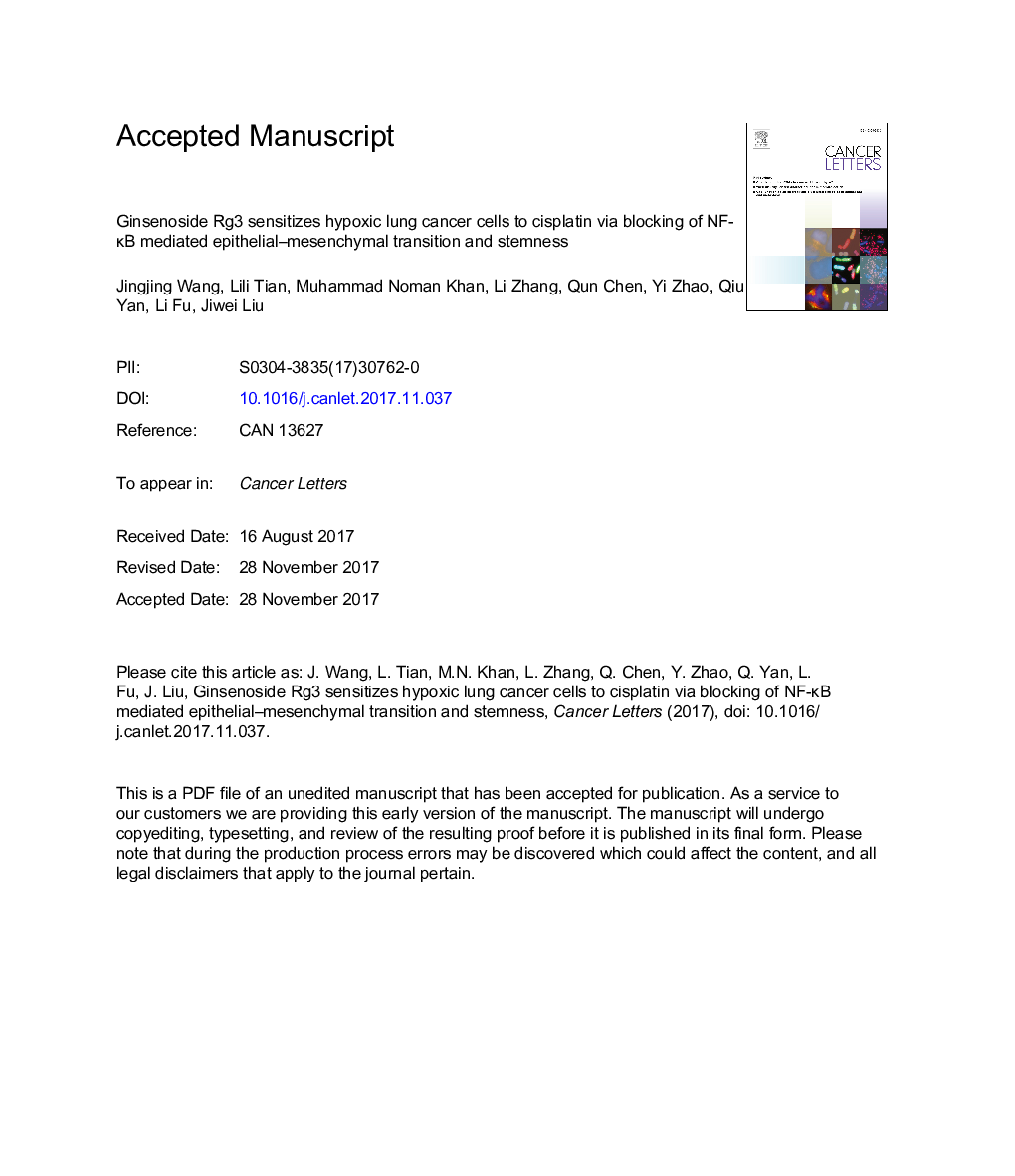| Article ID | Journal | Published Year | Pages | File Type |
|---|---|---|---|---|
| 8434915 | Cancer Letters | 2018 | 34 Pages |
Abstract
Cisplatin is a first line chemotherapy in lung cancer, but decreased susceptibility may limit its application. In solid tumors, hypoxia alters the microenvironment and is associated with proliferation, metastasis, and drug sensitivity. The hypoxia-induced desensitization of cisplatin is not clearly elucidated. 20 (R)-Ginsenoside (Rg3), the traditional Chinese medicine, is extracted from ginseng and has antitumor activities. In this study, we evaluated if Rg3 is effective in improving cisplatin sensitivity by blocking hypoxia. We found that the inhibition of proliferation potential by cisplatin was reduced in cobalt chloride (CoCl2)-induced hypoxia in lung cancer cells. Hypoxia caused alterations in epithelial-mesenchymal transition (EMT), which were detected by cellular morphology and EMT protein markers, and in stemness analyzed by spheroid formation and marker molecules. Hypoxia also activated EMT, which was mediated by the nuclear factor κB (NF-κB) pathway, and stemness, and Rg3 inhibited the activation of the NF-κB pathway. Furthermore, Rg3 could increase the sensitivity to cisplatin by inhibiting EMT and stemness in hypoxic lung cancer cells, and this effect was confirmed in vivo. In conclusion, Rg3 may improve the sensitivity of cisplatin in lung cancer therapy.
Keywords
NF-κBEMSARg3CoCl2PARP4,6-diamino-2-phenyl indoleHIF-1αDAPIHRPCCK-8FBSPBSElectrophoretic mobility shift assayStemnessEMTLung cancerNSCLCNon-small cell lung cancerfetal bovine serumcell counting kit-8nuclear factor κBPhosphate-buffered salineHypoxiaHorseradish peroxidasePropidium iodidepoly ADP-ribose polymeraseCobalt chlorideEpithelial–mesenchymal transition
Related Topics
Life Sciences
Biochemistry, Genetics and Molecular Biology
Cancer Research
Authors
Jingjing Wang, Lili Tian, Muhammad Noman Khan, Li Zhang, Qun Chen, Yi Zhao, Qiu Yan, Li Fu, Jiwei Liu,
